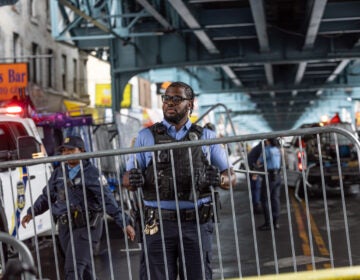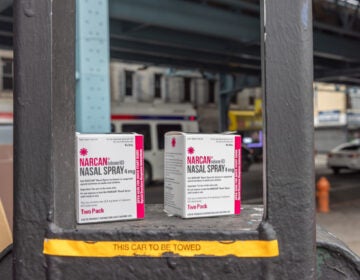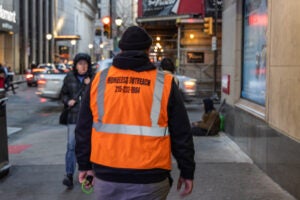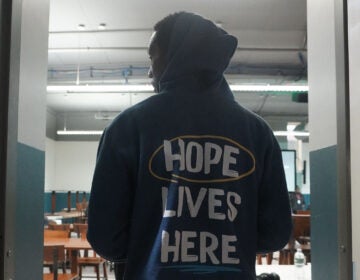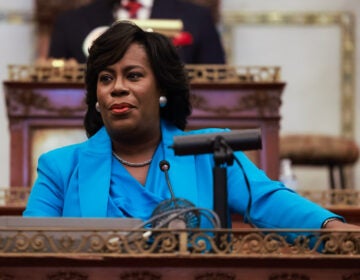Philly’s new ‘Wellness Court’ aims to offer alternative to jail time for those struggling with substance abuse in Kensington
Philadelphia police could offer reduced charges and possible expungement to people willing to submit to drug treatment.
Listen 1:01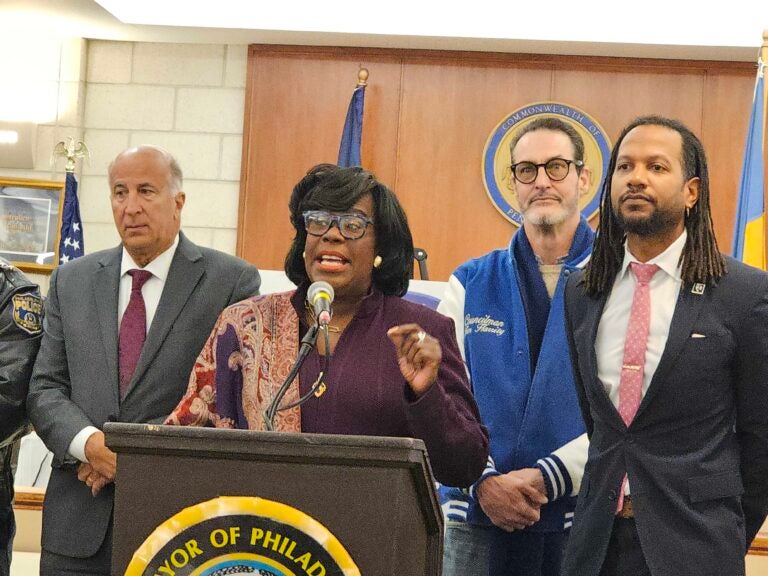
Mayor Cherelle Parker speaks on the diversion program Jan. 21, 2025. (Tom MacDonald/WHYY)
From Philly and the Pa. suburbs to South Jersey and Delaware, what would you like WHYY News to cover? Let us know!
A new court in Philadelphia aims to help address ongoing issues of substance abuse in Kensington.
The city’s new “Wellness Court” will run Wednesdays out of the 24-25th district courtroom.
In the courtroom Tuesday morning, Mayor Cherelle Parker signed an executive order that would give police an opportunity to offer people arrested for drug offenses a “summary offense” instead of the potential felony arrest.
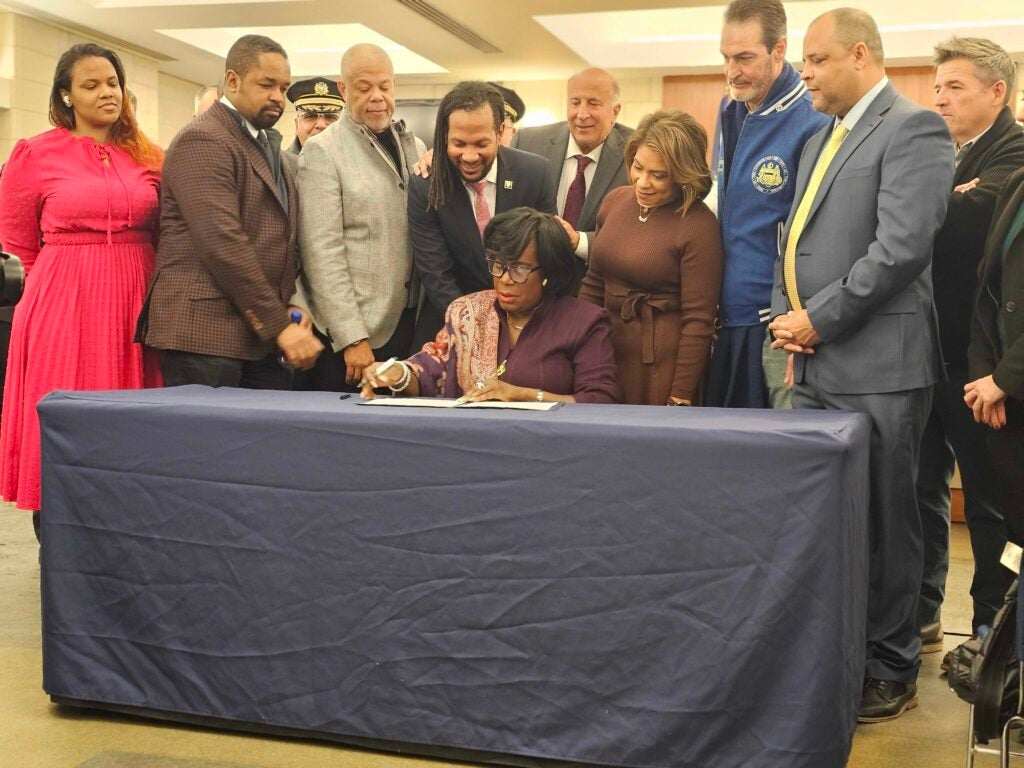
A summary offense is the equivalent of a traffic ticket and is the lowest offense available.
If the person agrees to take part in a treatment program, the summary offense could be expunged if the treatment plan is completed.
Parker said the new court is another step towards the city’s effort to “end this opioid-driven humanitarian crisis once and for all.”
“We have been hard at work for a year,” she said.
City Public Safety Director Adam Geer said the addition of new treatment beds in Northeast Philadelphia will help people in long-term recovery.
“We can treat those people with dignity and decency and continue to reinforce that the community deserved to be delivered from the trauma of living in an open-air drug market,” Geer said.
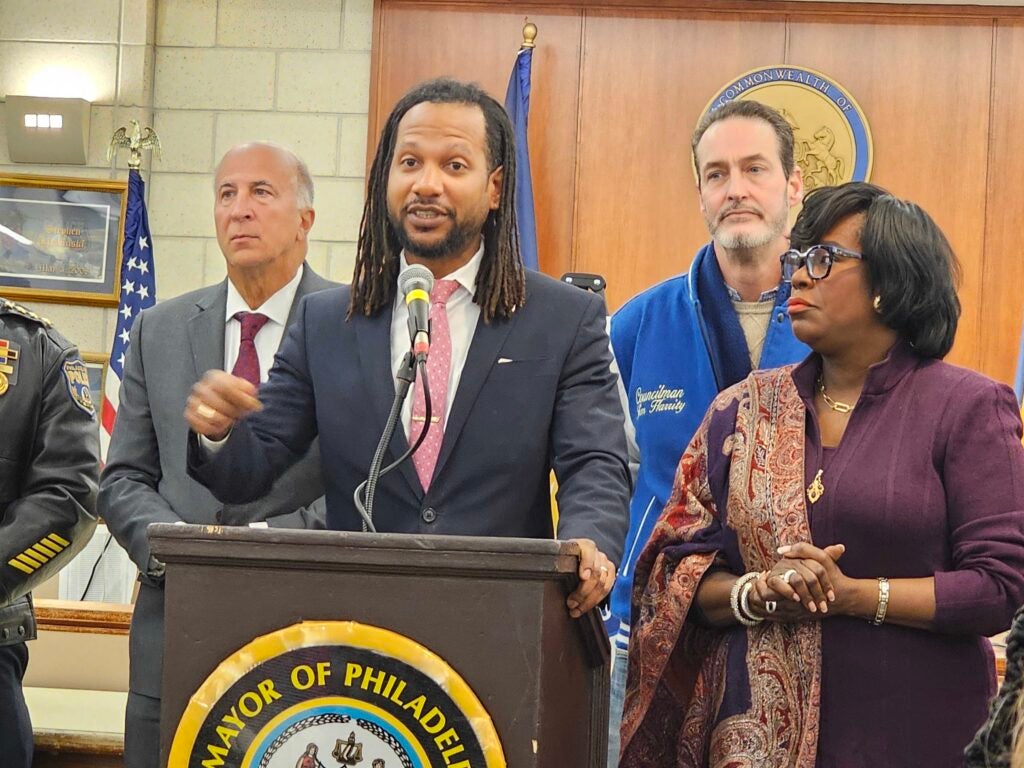
Earlier this month, the city announced the first phase opening of a long-term treatment center along the river in Northeast Philadelphia. The $54 million complex will house up to 336 people, and may expand in the future.
Short-term treatment will be available at the old Episcopal hospital complex near Kensington and Lehigh. There, instead of a prison cell, those in rehab will stay in rooms decorated by designs by Mural Arts and will not be subject to a criminal record that could preclude them from future employment.
City leaders stressed this was not the “criminalization of homelessness,” but rather a chance for people to have an alternative to a life of drugs and all of the associated problems.
During her campaign, Mayor Parker told voters that Kensington would be a priority and has worked on the area, with a major cleanup last spring and promises of more services to come. She’s said she believes the long-suffering neighborhood can be saved.
Councilmember Qutecy Lozada continues to be optimistic about the work being done, including the latest steps to clean up the neighborhood.
“We can be compassionate, we can be empathetic, we can connect people with resources, and we also can restore quality of life in the Kensington community,” she said.
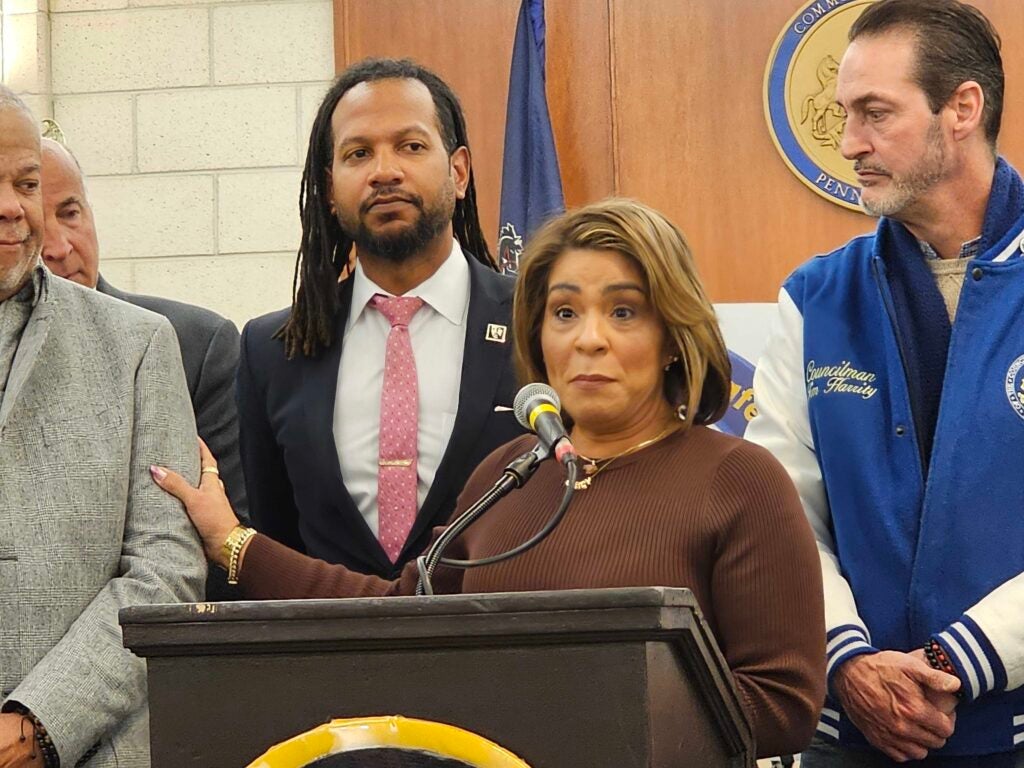
State Sen. Anthony Hardy Williams said he would ask for state funding to help expand the court if the pilot program is a success. He stressed that it’s not just Philadelphia that has a drug problem and other municipalities in Pennsylvania could benefit from the program if it works.
As for just how much the effort would cost, Parker said for now it would be within the city budget, but said she would come up with how much it would cost in the next budget to possibly expand the court’s operation more than just once a week.

Get daily updates from WHYY News!
WHYY is your source for fact-based, in-depth journalism and information. As a nonprofit organization, we rely on financial support from readers like you. Please give today.



